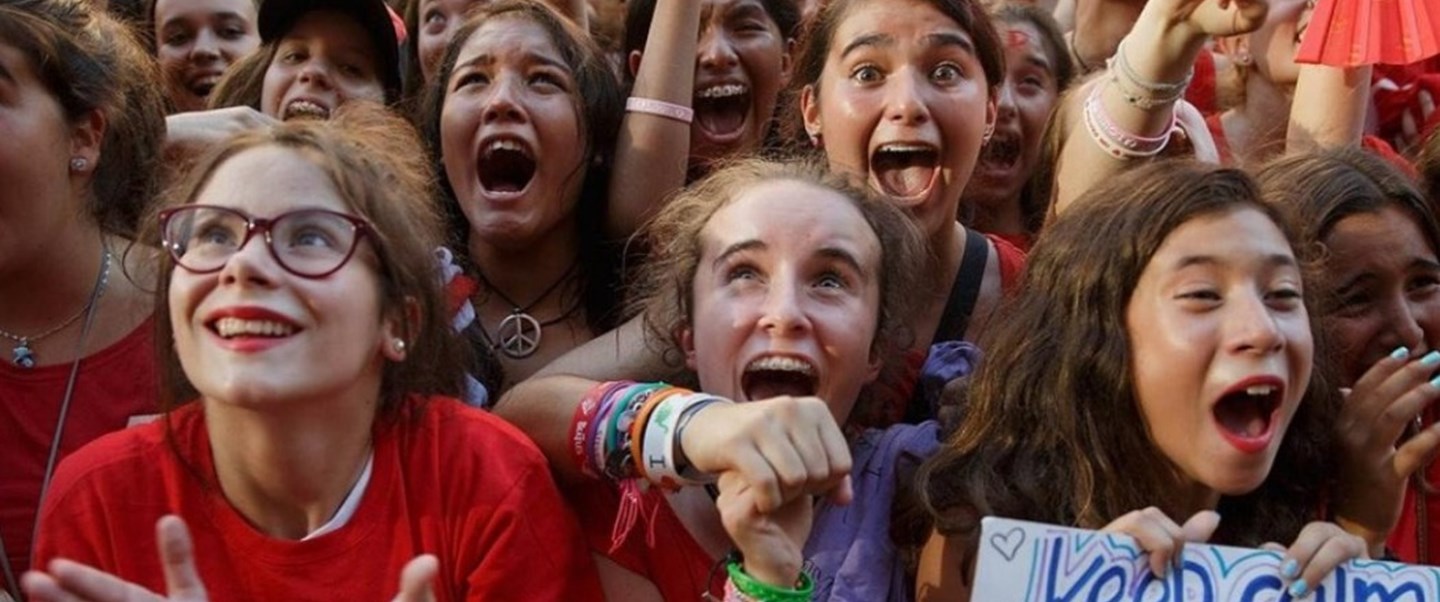I’ve tried to review a few a few boy band documentaries in my time. Backstreet Boys: Show ‘Em What You’re Made Of came out in 2015, made me cry, made me feel connected, and I gave it a 4 out of 4. Although yes, that number was probably too high and definitely didn’t make my end of the year list.
Earlier this year, we got The Boy Band Con: The Lou Pearlman Story, which deals more with the Backstreet Boys and N’Sync, about their former manager, who formed them and swindled them out of tons of money. It involved legal fees, it started the war between the boy bands, and all of that.
I never wrote the review because it was on YouTube, but it was overall just okay. A lot more N’Sync focused, not balanced. I can’t believe they couldn’t get more people to say their stories.
But what about the other side of the fandom? Not the boys or men on the stage, but the women down below, screaming, fainting, crying in fits of passion? Are they just robots in this boy band equation? Are they people too, or do those years just get blacked out for these people and after awhile they go back to functioning members of society?
I Used To Be Normal: A Boyband Fangirl Story wants to tell their tale.

There is power in their voices.
The majority of the documentary is interviews with a few women, who all became obsessed with some band. They talk about how they were before hand, when they gained the desire to love the band, what they did as mega fans, and how they still feel now, some of them years, or even decades later.
We don’t just have the 90’s here. We have a more modern representative for One Direction! We have one of the many people who were extreme fans of The Beatles. And we have those obsessed with Take That, an Australian boy band, and Backstreet Boys.
Variety is nice, but I feel like I would have preferred more individual fans with various stories, instead of just focusing on one per band. Sure, some of these fandoms changed their lives, and still affect them to this day. But it starts to drag when we only get these stories, as the interesting tidbits seem to get fewer and fewer between.
I will also note that they didn’t break up the format enough during this documentary. Only at one point do they back away to talk about what it means to be a fan, or the boy band formula, or anything like that. It is important to talk about it, but I wish there were more interruptions from the fangirl narrative that kept the information flowing and broke up the monotony.
Eventually all of these documentaries can be put together to form a more cohesive boy band focused 90’s experience that will be truly telling of the times, and I cannot wait for that.